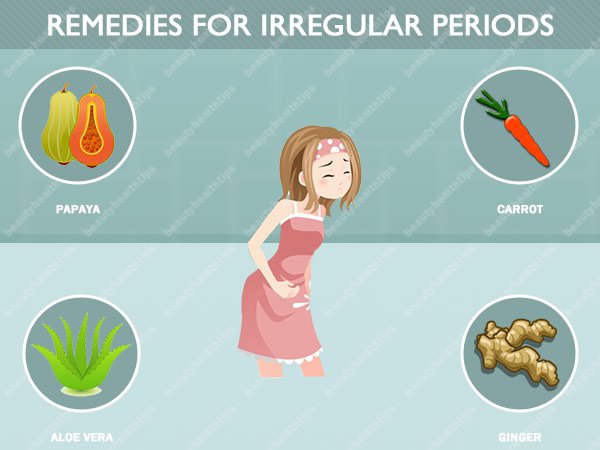Unless you are amongst the lucky few who are blessed with a completely painless period, you are sure to not to like those particular days of the month.
Periods are still a great taboo in India, but it is an important part of the life of every woman and you actually need to be fully aware about every aspect of it.
Periods say a lot about your health; this is why it is important for you to have a clear idea about what your periods might be telling you. Being cautious about these signs can be actually helpful to save you from serious health problems later on.
Before we start with the serious health problems that might be linked with your periods, let us make it clear that you need to be cautious about these symptoms and consult your gynecologist at the earliest if you continue observing them for more than 2 months or immediately in case it goes out of control.
However, observing these symptoms in a single month during your periods might not be actually a sufficient reason for you to worry.
The menstrual cycle of every woman vary extensively depending on a lot of factors, and hence if you observe any of the problems mentioned below during your periods in a particular month, worrying should not be the first thing.
Check out for the same symptoms during the next month as well, and if it continues visit your gynecologist.
Skipping periods
Unless you are trying to get pregnant, skipping your periods for a month might not be the reason to rush to your doctor, because there can be several reasons behind it. One of the most common reasons of late periods or skipped periods is that something else is also not right in your body.
The menstrual cycle of a woman is controlled by the hypothalamus of the brain, and unless your body is in a perfectly fit condition, it might stop the ovulation.
Hypothalamus is highly sensitive to factors like stress, deprivation of sleep, use of medicines, excessive exercise and hence any of these might be working as the reason for you to skip your periods for a month.
So, once you skip your periods for a month, slow down things in your life and your cycle is most expected to get back to normal on its own.
However, if you skip your periods for more than a month or period skipping is becoming a regular thing for you it might actually indicate something much serious that needs immediate medical help.
PCOS or Polycystic Ovarian Syndrome can be one of the major and common reasons of skipping periods or late periods. Iron deficiency or anemia is often the other reason behind missing periods and in both the cases immediate treatment is vital.
Period pains
More than 50% of women experience cramps and pain during their menstrual cycle. During periods, the inner uterine lining is shaded and it might result into period cramps. The hormone responsible here for the pain and cramps is prostaglandin.
While menstrual cramps and pains are quite normal, if you are having severe cramps or excruciating pain that is making you cancel your programs for the day, it might be something much more serious.
Extreme pain during periods can be an indicator of endometriosis, where the uterine tissue grows outside the uterus. However, this condition occurs only in 7 to 10 percent of women and can affect fertility in a negative way.
It can also be caused due to cyst or polyps. So, if you are having extreme pain during your periods, consult your gynecologist without delay.
The period flow
The flow of your period also indicates some major health factors. While losing gallons of blood during your monthly menstrual cycle is not normal and warns for immediate medical help, experiencing very light blood flow can also be indicating some other health problems.
If you are having heavy bleeding every month it can be an indicator of conditions like fibroids, polyps or any other type of growth on the uterine wall. Extreme flow can also be an indicator of Endometriosis.
Lighter period flow can indicate that your body is going through a hormonal change. It can also be a result of poor nutrition or excessive stress.
Light flow is often experienced by women in their pre-menopausal stage. Hormonal birth control treatments can also be a reason of lighter flow.
However, very light flow at a reproductively active age might indicate serious health conditions like autoimmune disorders or Asherman’s syndrome. Thyroid problems or PCOS can also result into extremely less period flow.
The color of the period blood
Even the color of the period blood can be indicating a number of health conditions and hence keeping an eye for it is only wise.
The hormonal balance in the body of a woman during the cycle changes continuously which can affect the color as well as the consistency of the period blood. Usually three color patterns of the menstrual blood are observed during periods, the blueberry, the strawberry and the cranberry.
The blueberry color period blood with a frozen texture indicates a higher estrogen level in the body, while the strawberry colored period with a pinkish appearance and in the consistency of jelly can indicate a lower estrogen level, which can result into a number of conditions like, low libido, fatigue, vaginal dryness and even hair loss.
Period that is cranberry in color and of the consistency of a juice indicates that the hormonal levels in the body are normal.
Sudden bleeding after periods
If you are on contraceptive pills or certain hormonal medications bleeding after your periods might not indicate anything unusual. However, if you find it disrupting your normal life then you should report it to your gynecologist at the earliest.
On the other hand, if you are not on pills, and you are experiencing sudden heavy bleeding even after periods, it is not normal and you need to talk to your gynecologist at the earliest.
Bleeding after your periods can be a sign of pre-cancer or cancer. It can also be caused due to hormonal imbalance in the body, vaginal infection or a polyp and in every case needs immediate medical attention.
Having a pseudo period
If you already know what we might be pointing here by pseudo periods, it is most likely that you have already experienced it.
A pseudo period occurs as an irregular, surprise bleeding without any other symptoms of hormonal changes in the body, like tenderness of the breasts or change in appetite. In such cases, it is most likely that you are not ovulating at all.
It can be observed in women who are obese or overweight. It can also be a symptom of being in the prediabetic range, as insulin resistance impacts the ovaries directly and can work as the main cause of pseudo periods.





